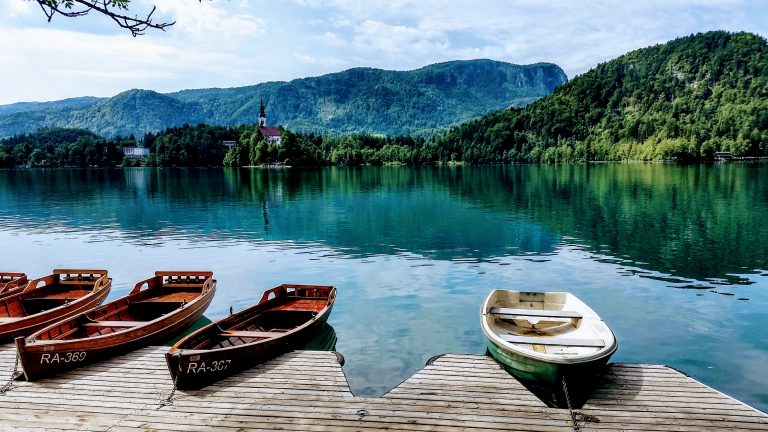
Traveling Wisely and Preserving Cultures and Nature Ecotourism is yet another new trend in the industry, targeting yet another direction toward more responsible and sustainable travel industry practice. It is far away from all the other forms of tourism which are very often orientated toward entertainment, luxury, or comfort in place of promoting preservation, education, and respect for local cultures and their ecosystems. To fully benefit from ecotourism, it is crucial to prevent jet lag during travel.
Since the world has started to become more conscious of ecological issues and the devastating effects of mass tourism, it is an intelligent way to explore the world without harming it too much.
Definition Ecotourism
Responsible visitation into natural areas which reserve environments, gives benefits to host communities, and provides sustainable opportunities for life thereby creates ecotourism. It gives visitors an opportunity to immerse in nature and local communities as they learn about and become educated in environmental stewardship and responsible operation.

Though ecotourism makes visitors engage meaningfully with the environment instead of just passing through a destination for the plain purpose of seeing its great beauty or to engage in some sports activity, it may involve education of wildlife conservation, community-led initiatives, or environment-friendly facilities and services contributing to local economies.
The Standards of Ecotourism
The International Ecotourism Society establishes several general principles to govern ecotourism:
1. Reduce Ecological Impacts: Ecotourism will reduce traveling effects that are friendly to the ecology. For example, ‘made accommodations in transport that is eco-friendly and ensures that all activities undertaken may not really pose a threat to the local ecosystems.
2. Direct Support of Protection Activities: Ecotourism sometimes directly supports the protection programs. This is realized through either park fees, voluntary donations, or direct participation in active protection activities. It has always contributed towards protecting natural areas and animals at the bottom of it.
3. Respect the Local Cultures: Ecotourism builds up areas of strength for an attitude toward social responsiveness and sensitivity. It refers to engaging with the locals in ways where you respect their practice and culture but not in ways that could affect their lifestyle adversely.
4. Educational Service: Actually, education appears to be one of the fundamental aspects of ecotourism. The visitors should be educated regarding the destinations they visit, in terms of the same environments as well as the cultures and problems which they face in terms of land loss, pollution, and climatic change.
5. Community Empowerment: Ecotourism empowers the local communities by providing employment opportunities, helping develop Neighborhood Associations and encouraging Sustainable Financial Growth. It is ahead of the mass tourism industry that fundamentally profits the giant cooperatives as it tries to keep the benefits within the neighborhood network.
Benefits of Ecotourism

1. Environmental conservation: Ecotourism protects the environment through the promotion of sustainable practices and subsidizing preservation activities, spreading the protection of fragile environments, and eliminating double-dealing regarding natural resources.
2. Cultural Conservation: Eco-tourism is always practiced in most of the cultures which are rich in social heritage. Ecotourism finally leads towards conservation of indigenous practices, dialects, and customs through proper dialogue with the networks existing in the local context. It further revives networks to support their social practice as an aspect in the tourism experience.
3. Financial Benefit to Local Networks: Ecotourism offers a better financial opportunity to local networks, even more so if it is a countryside or less mass-market destination. This form of tourism promotes the appointment of locals in the management, hospitality, and conservation processes and local businesses. The locality benefits from the activity while its value is not extracted by large tourism operators.
4. Education and Consciousness: Eco-tourism raises consciousness towards ecological as well social issues. The tourist shall return to the local community with more appreciation about the need to conserve and sustain the environment that thereby turns out to be a more responsible consumer in the local community.
5. Less Crowding: Large-scale tourism business is characterized by crowding in popular destinations, and this again causes further degradation of the environment and degrades the tourist experience. Ecotourism, in contrast, is promoted as small businesses with larger, more immersive travel experiences while avoiding crowding at all costs.
Examples of Ecotourism Destinations

There are some destinations around the world that have developed eco-tourism principles and are offering tourists a chance to experience nature and culture at a mere price. These include:
1. Costa Rica: This is also listed among the best-recognized ecotourism destinies, as this country ensures exceedingly high biodiversity and commitment to ecological security. Visitors can explore rainforests, volcanoes, and perfect seashores as well as learn about wildlife preservation and practical agribusiness.
2. Galápagos Islands, Ecuador: The Galápagos Islands best represent an objective that makes ecotourism turn out to be an activity very much for conservation. Limited numbers of visitors prevent tourism from turning out destructive to unique biological systems. For the tourists, it may represent a rare opportunity to observe unusual species of wildlife and serve as contributing factors for the cause for conservation.
3. Bhutan: High-value, low-impact tourism is the policy adopted in this small Himalayan kingdom. Limited in actual numbers of tourists allowed to set foot within its borders, the government also exercises legislative powers whereby they ensure that very tight environmental rules and regulations govern the tourists’ conduct. With sustainability at its core, Bhutan stands tall at the top rankings of the best ecotourist locations in the entire world.
4. Kenya: Kenyan ecotourism can primarily be considered to have a rationale based on animal conservation. At present, it is associated with several public spots and sanctuaries housing animals like elephants, lions, and rhinos. Kenyan safaris try to keep the ecological footprint low but at times do a direct offset to conservation and anti-poaching efforts.
How to Become a Responsible Ecotourist

Ecotourism is not just taking that tour of an eco-friendly destination; it involves becoming a kind of person who chooses and engages in activities that dovetail with the principles of sustainability. Example of an ecotourist who has responsible practice:
Eco-Friendly Accommodation: Cabanas, hotels, or resorts accredited that are also considered eco-friendly; available cabins, run by natural sources for energy and waste reduction.
Conserve Nearby Fauna: Refrain from any activities that involve exploitation of animals, such as riding elephants or visiting operations that do not focus on animal welfare. Carry reusable water jugs, sacks, and holders to avoid producing plastic waste and use resources wisely during your trip. Conserve water and energy. Draw in with Nearby
Communities: Support neighborhood craftspeople, coffee shops, and businesses. Respect local customs and dress accordingly. Learn before you go: Take up some of your time to read about the nature and social issues of your destination and explore the ways you might make a meaningful contribution.
Conclusion
Eco-tourism is a much more viable conscious travel model, one within which sojourners may experience the beauty and diversity of this world in ways most unobtrusive to the environment and the community. People have increasingly found quite respectful ways to use ecotourism to contribute meaningfully to both their own lives and the lives of communities they are visiting.
FAQS
What is the aim of ecotourism?
Ecotourism, sometimes known as “nature tourism,” aims to reduce the negative effects that tourism has on the environment. The goal is to use transportation to bring communities, sustainable development, and conservation together.
Why is ecotourism better?
By encouraging the wise use of natural resources, ecotourism lowers waste and pollution, which is one of its key advantages. Ecotourists contribute to the preservation of ecosystems by reducing energy use, utilizing renewable energy sources like solar power, and staying away from single-use plastics.
Why is ecotourism important today?
The ability of ecotourism to preserve rare species and delicate ecosystems may be its greatest influence. In order to counteract risks like poaching, habitat destruction, and species extinction, conservation efforts are frequently directly funded by the money received from park fees, lodge stays, and guided tours.
How do local people benefit from ecotourism?
The proceeds from ecotourism support regional preservation initiatives and promote the use of travel as a means of enhancing environmental protection. By encouraging respect and admiration for the local culture of the destination, ecotourism can help improve community development.
What is eco-tourism responsible for?
The Global Ecotourism Network, or GEN, defines ecotourism as “responsible travel to natural areas that conserves the environment, sustains the well-being of the local people, and creates knowledge and understanding through interpretation and education of all involved (visitors, staff, and the visited)”.






